
Find Help
More Items From Ergsy search
-

Is there a cure for nut allergies?
Relevance: 100%
-
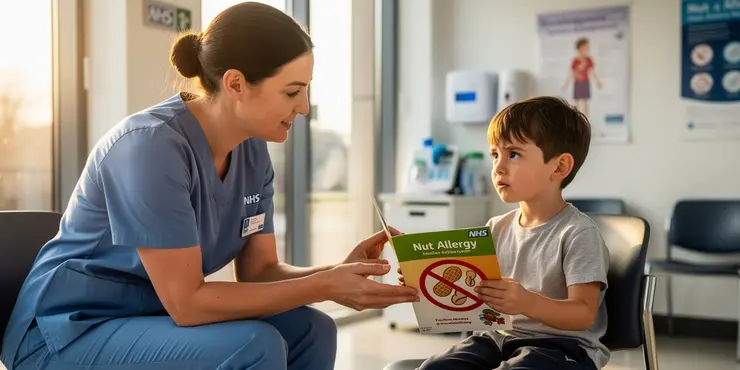
What are Nut Allergies?
Relevance: 76%
-

Can nut allergies be outgrown?
Relevance: 73%
-
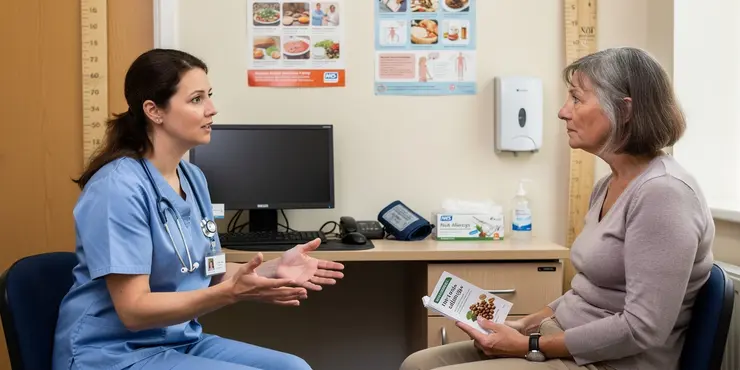
Are nut oils safe for people with nut allergies?
Relevance: 70%
-
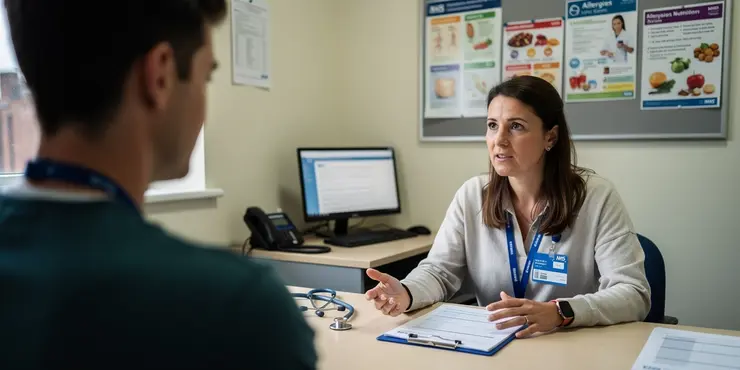
What is the difference between a nut allergy and intolerance?
Relevance: 69%
-
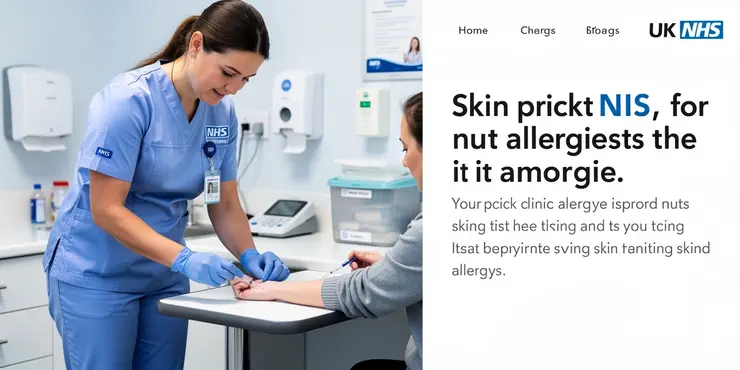
How is a nut allergy diagnosed?
Relevance: 69%
-
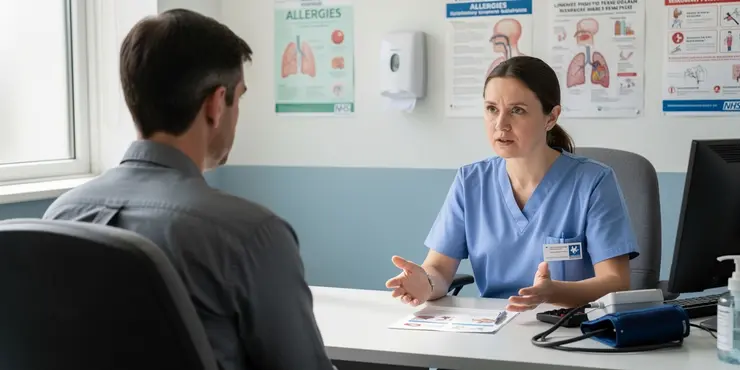
What are the symptoms of a nut allergy?
Relevance: 68%
-

How can nut allergies be managed?
Relevance: 68%
-

What should I do if I think I have a nut allergy?
Relevance: 67%
-

Can nut allergies develop later in life?
Relevance: 66%
-

What types of nuts can cause allergies?
Relevance: 65%
-
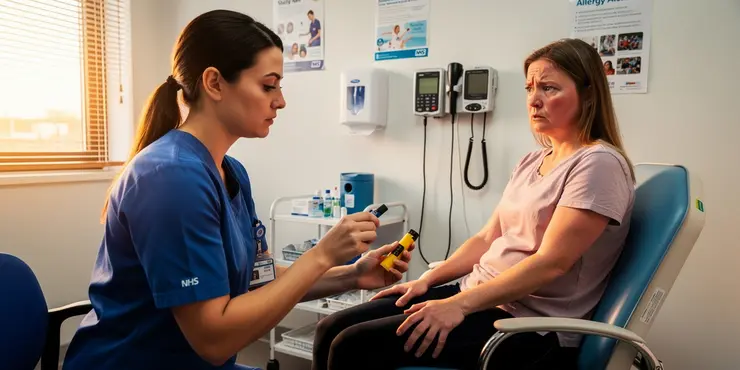
Is epinephrine the only treatment for severe nut allergy reactions?
Relevance: 58%
-

What should I tell my family and friends about my nut allergy?
Relevance: 58%
-
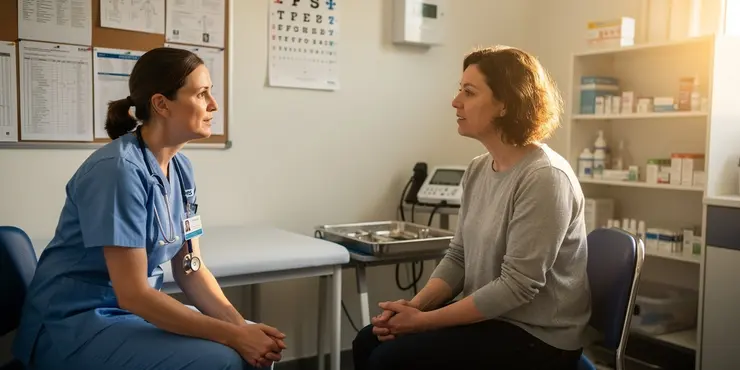
Are there any recent treatments or research developments for nut allergies?
Relevance: 50%
-

Can tree nuts and peanuts cause cross-reactions?
Relevance: 47%
-

Is it safe to eat foods labeled as 'may contain nuts'?
Relevance: 46%
-

What foods should I avoid if I have a nut allergy?
Relevance: 45%
-
How can I prevent cross-contamination with nuts in the kitchen?
Relevance: 45%
-
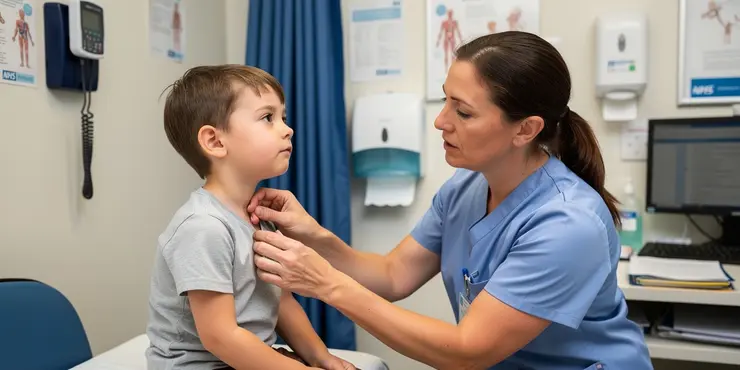
Is there a cure for eczema?
Relevance: 36%
-
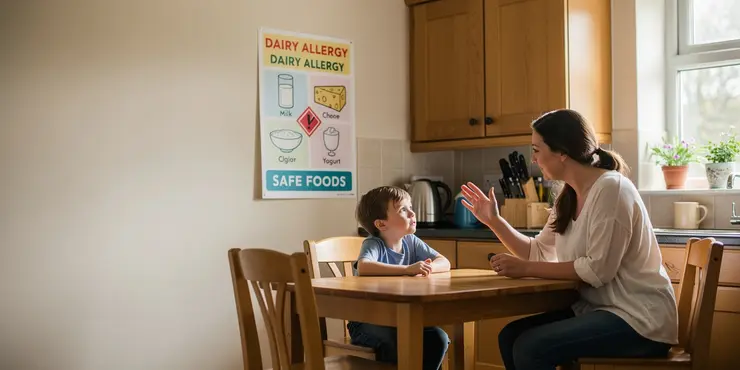
What are Dairy Allergies?
Relevance: 35%
-
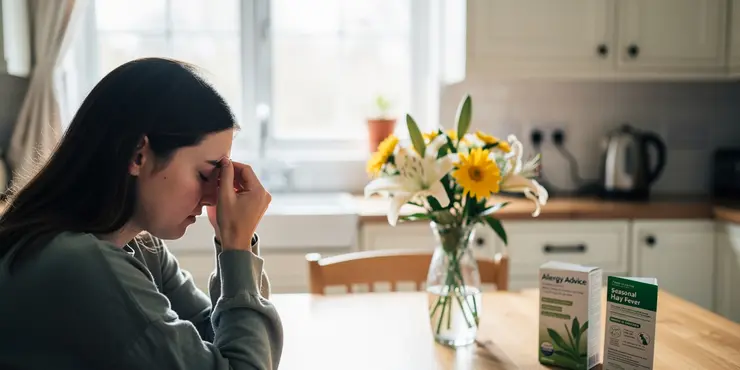
Dealing with Seasonal Allergies
Relevance: 34%
-
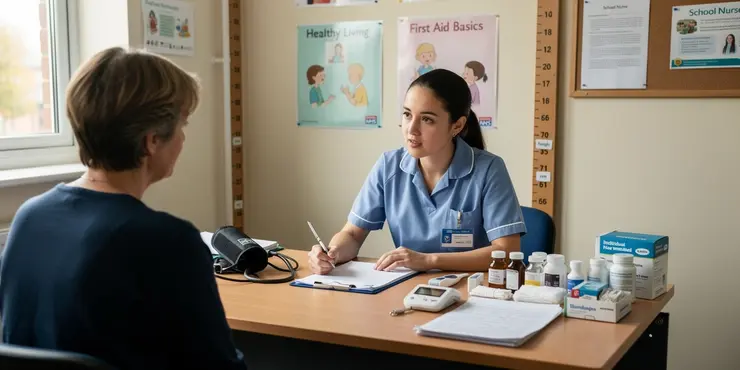
How are food allergies managed in UK schools?
Relevance: 34%
-
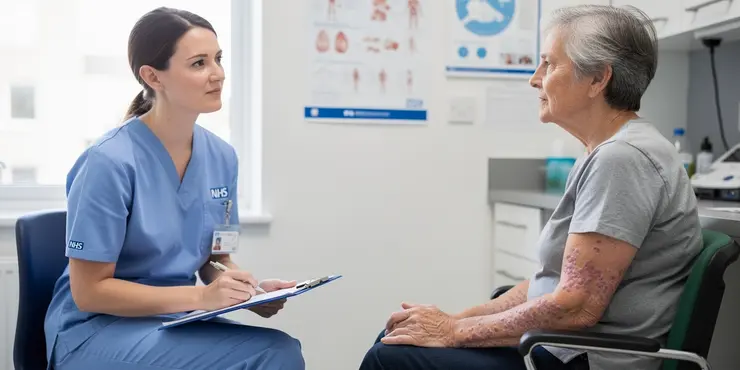
Is there a cure for psoriasis?
Relevance: 33%
-

Is there a way to cure a cold quickly?
Relevance: 32%
-

Is there a cure for ADHD?
Relevance: 32%
-

Can autism be cured?
Relevance: 31%
-
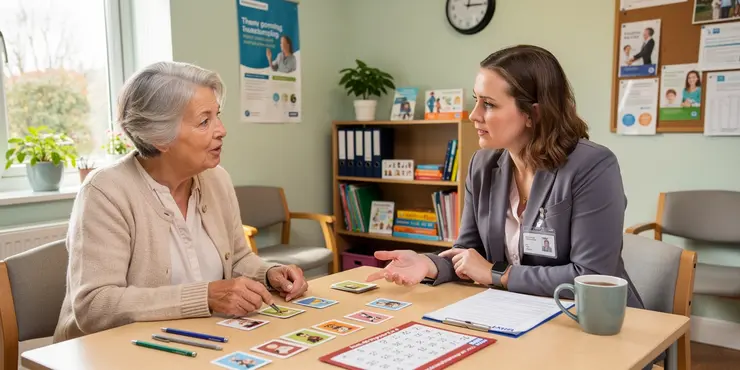
Is there a cure for dementia?
Relevance: 31%
-

Can I get the COVID jab if I have allergies?
Relevance: 30%
-

What is the principle of 'like cures like'?
Relevance: 30%
-
Can tinnitus be cured?
Relevance: 30%
-

Can asthma be cured?
Relevance: 30%
-
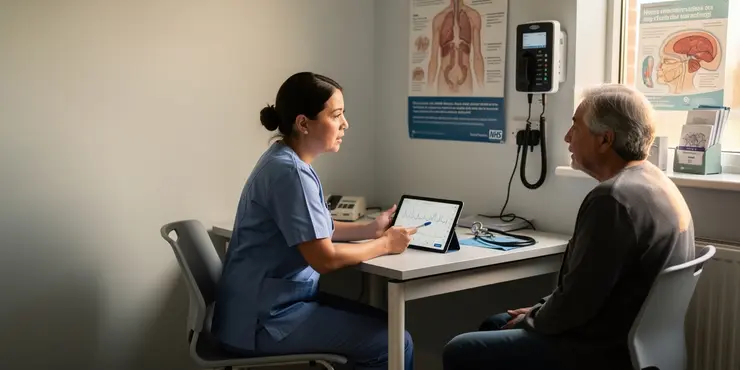
Can sleep apnea be cured?
Relevance: 30%
-

Can children with nut allergies safely attend school?
Relevance: 29%
-
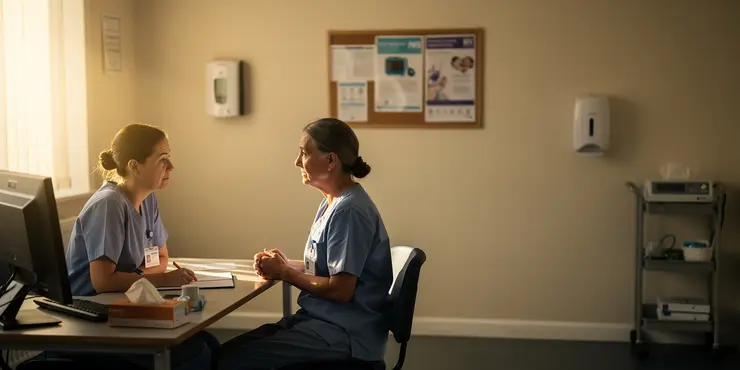
Can Huntington's disease be cured?
Relevance: 29%
-

Is there a cure for Crohn's disease?
Relevance: 29%
-
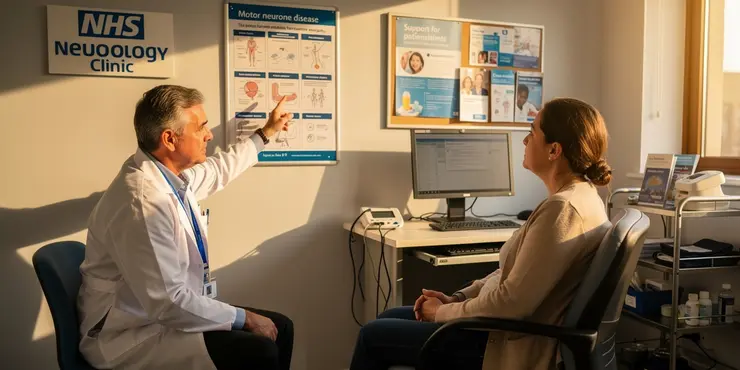
Is there a cure for motor neurone disease?
Relevance: 28%
-
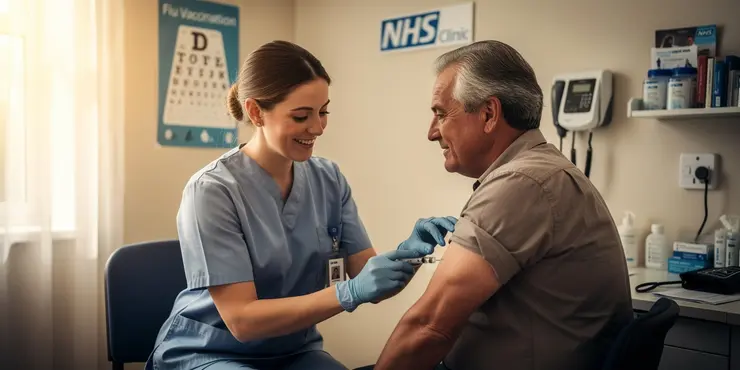
What if I have an egg allergy, can I still get the flu vaccine?
Relevance: 28%
-

Can patients with drug allergies still take heart disease medications?
Relevance: 28%
-

Is there a cure for cold sores?
Relevance: 28%
-
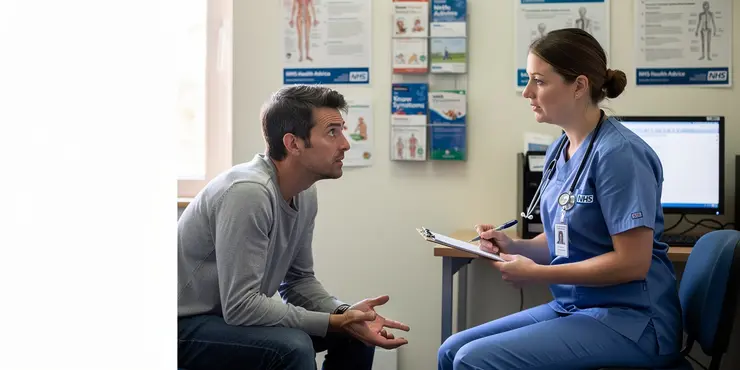
Is there a cure for Nipah Virus?
Relevance: 27%
Understanding Nut Allergies
Nut allergies are a common type of food allergy characterized by an adverse reaction in the immune system upon exposure to nuts. In the UK, these allergies can significantly impact the quality of life, as they often cause severe and potentially life-threatening reactions known as anaphylaxis. People with nut allergies must be vigilant about avoiding nuts and products containing them to prevent allergic reactions.
Current Management Practices
As of now, there is no definitive cure for nut allergies. The primary approach to managing these allergies is strict avoidance of nuts and nut-containing products. This can be challenging given that nuts are present in many foods and can sometimes be hidden ingredients. Allergic individuals often carry an adrenaline auto-injector, such as an EpiPen, to use in case of accidental exposure, which can help mitigate severe reactions.
Research and Developments
Research is ongoing to find a more permanent solution or treatment to alleviate nut allergies. Some promising avenues include oral immunotherapy (OIT), where individuals are gradually exposed to increasing amounts of nut protein to build tolerance. Trials in the UK and internationally have shown that OIT can increase the threshold at which an allergic reaction occurs, thus providing some level of protection against accidental exposure.
Another experimental approach involves the use of biologic drugs that target specific pathways in the immune response, potentially reducing the severity of allergic reactions. These treatments are still in various stages of research and have not yet become widely available.
Future Possibilities
While there is hope that these treatments will become available to the public in the future, they currently serve as supplementary aids rather than definitive solutions. Researchers are optimistic about developing more effective treatments to reduce or eliminate the need for avoidance strategies. Advances in genetic and molecular research may present new opportunities to tackle the root causes of food allergies.
Conclusion
Although there is no cure for nut allergies at the moment, ongoing research continues to provide hope. New treatment methods, such as oral immunotherapy, offer promising results and may soon become sustainable management strategies. Until such therapies are proven effective and safe for widespread use, individuals with nut allergies in the UK must continue to avoid exposure to nuts and stay informed about potential developments in treatment options.
Understanding Nut Allergies
Nut allergies are when some people get sick from eating nuts. This happens because their body's defense system reacts strongly to nuts. In the UK, nut allergies can be very serious and might even be life-threatening, causing something called anaphylaxis. People with nut allergies need to be careful to avoid eating nuts or foods with nuts to stay safe.
Current Management Practices
Right now, there is no cure for nut allergies. The best way to deal with these allergies is to stay away from nuts and foods that have nuts in them. This can be tough because nuts are in many foods, sometimes hidden. People with nut allergies should carry a special medicine called an adrenaline auto-injector, like an EpiPen. This can help if they accidentally eat nuts and start having a bad reaction.
Research and Developments
Scientists are trying to find better treatments for nut allergies. One idea is called oral immunotherapy (OIT). This is when a person is given small and slowly increasing amounts of nut proteins, so they can get used to them. Studies in the UK and other places show that OIT might help people have less severe reactions if they accidentally eat nuts.
Another idea is to use special medicines called biologic drugs. These target the body's defense system to help make reactions not as bad. These treatments are still being studied and are not yet available for everyone to use.
Future Possibilities
There is hope for new treatments to become available. Right now, they help a bit but are not a full solution. Scientists hope to make better treatments that could stop people from needing to avoid nuts all the time. New studies on how our bodies work might help us understand and fix food allergies better in the future.
Conclusion
There isn't a cure for nut allergies yet, but research is ongoing and offers hope. New treatments like oral immunotherapy show promise and might help manage allergies better soon. Until they are proven safe and helpful for everyone, people with nut allergies in the UK must keep avoiding nuts and stay updated on new treatment ideas.
Frequently Asked Questions
Is there a permanent cure for nut allergies?
Currently, there is no permanent cure for nut allergies, but research is ongoing.
What treatments are available for nut allergies?
Treatments focus on managing symptoms and avoiding nuts, with options like epinephrine for severe reactions and oral immunotherapy as a potential way to increase tolerance.
What is oral immunotherapy for nut allergies?
Oral immunotherapy involves consuming small, gradually increasing amounts of an allergen under medical supervision to build tolerance.
Can nut allergies be outgrown?
Some people, especially children, may outgrow a nut allergy, but it is not guaranteed.
How can I manage a nut allergy?
Management includes strict avoidance of nuts, carrying an epinephrine auto-injector, and reading food labels carefully.
Are there any promising treatments for nut allergies?
Research into treatments such as biologic drugs, vaccines, and new forms of immunotherapy is ongoing.
What should I do if I suspect I have a nut allergy?
Consult an allergist for proper testing and diagnosis if you suspect a nut allergy.
Is it dangerous to self-diagnose a nut allergy?
Yes, it's important to get a proper diagnosis from a healthcare professional rather than self-diagnosing.
What happens in a nut allergy reaction?
A nut allergy reaction can range from mild symptoms like hives to severe anaphylaxis.
Why do some people have nut allergies?
Nut allergies occur when the immune system mistakenly identifies nuts as harmful and overreacts.
Can adults develop nut allergies later in life?
Yes, it's possible for adults to develop nut allergies, even if they did not have them as children.
Is there genetic testing available for nut allergies?
Currently, there is no genetic test specifically for nut allergies, but family history can be a factor.
How effective is avoiding nuts in preventing allergic reactions?
Avoiding nuts is currently the most effective way to prevent allergic reactions.
Is it safe for someone with a nut allergy to eat foods labeled 'may contain nuts'?
It's risky, as cross-contamination can occur; individuals with severe allergies should avoid such foods.
What role does epinephrine play in managing nut allergies?
Epinephrine is the first-line treatment for severe allergic reactions and can save lives if administered promptly.
What should I do if I accidentally eat nuts and have an allergy?
Use an epinephrine auto-injector if prescribed, and seek emergency medical help immediately.
Are there support groups for people with nut allergies?
Yes, there are many support groups and resources available for individuals and families managing nut allergies.
Can nut allergies change in severity over time?
Yes, the severity of allergic reactions can vary over time and with each exposure.
Is desensitization therapy effective for nut allergies?
Desensitization, such as oral immunotherapy, can be effective in increasing tolerance, but is not a cure.
How can I ensure food is safe for someone with a nut allergy?
Read labels carefully, communicate with manufacturers and restaurants, and prepare food in a nut-free environment.
Can nut allergies be cured forever?
People with nut allergies can get sick if they eat nuts. Right now, there is no medicine that can make nut allergies go away forever. But, there are things that can help:
- Avoid eating nuts. Read food labels to check if they have nuts.
- Carry an EpiPen. It can help if you have an allergic reaction.
- See an allergy doctor. They can give advice and check your allergies.
These steps can help keep you safe. Always talk to a doctor for the best advice.
Right now, there is no way to completely get rid of nut allergies. But scientists are working hard to find a cure.
How can you help someone with nut allergies?
People who can't eat nuts have a nut allergy. Here are some ways to help them:
- **Avoid Nuts**: Don't eat or use foods with nuts in them.
- **Read Labels**: Always check food labels to make sure there are no nuts.
- **Carry Medicine**: Some people need to carry medicine like an EpiPen. It helps if they have a reaction.
- **Tell Others**: Tell teachers, friends, and family about the nut allergy so they can help.
- **See a Doctor**: Go to a doctor for more advice or help.
These steps can keep people with nut allergies safe.
Treatments help manage symptoms and keep away from nuts. If someone has a bad reaction, they can use medicine called epinephrine. There is also a treatment called oral immunotherapy that might help people get used to nuts.
What is oral immunotherapy for nut allergies?
Oral immunotherapy helps people with nut allergies.
It works like a special medicine. People eat very small bits of nuts.
Over time, they eat a little more.
This can help them not react to nuts.
If someone is allergic to nuts, they should only try this with a doctor.
Tools like picture cards or videos can also help you understand more.
Oral immunotherapy is a way to help people with allergies. It means a doctor gives you tiny bits of the thing you are allergic to. Over time, they give you a bit more. This helps your body get used to it.
Can kids stop having nut allergies?
Some kids can stop being allergic to nuts as they grow up. But it's not the same for everyone. It's important to talk to a doctor to find out. The doctor can do special tests to see if it's safe.
Supportive Tools:
- Ask a grown-up to help you understand more.
- Use pictures or videos about nut allergies to learn.
Some people, like kids, might stop being allergic to nuts as they get older, but it doesn't always happen.
How can I take care of a nut allergy?
Here are some easy ways to stay safe if you have a nut allergy:
- Don't eat nuts: Ask if food has nuts before you eat it.
- Read labels: Check if food packages say "may contain nuts."
- Tell others: Let friends, teachers, and family know about your allergy.
- Carry medicine: Keep an EpiPen or medicine with you. It helps if you eat nuts by mistake.
- Wear a bracelet: A special bracelet can tell people about your allergy if you can't talk.
Remember, you can use picture reminders or ask grown-ups to help you stay safe from nuts.
To stay safe, do not eat nuts. Always have a special medicine pen called an epinephrine auto-injector with you. Carefully read food labels to check for nuts. You can use a magnifying glass to help read small print and ask for help if you are unsure.
Are there new ways to help people with nut allergies?
Scientists are working on new ways to help people feel better. They are studying special medicines called biologic drugs, vaccines, and new kinds of treatments called immunotherapy.
What to Do If You Think You Are Allergic to Nuts
If you think nuts make you feel sick, tell a grown-up. They can help you see a doctor.
The doctor can do a test to see if nuts are making you feel bad.
Stay away from nuts and foods with nuts until you talk to the doctor.
Read food labels with a grown-up to check for nuts.
You can have a special plan for what to do if you eat nuts by accident.
Feel better with the right help!
If you think you might be allergic to nuts, ask a special doctor called an allergist. They can help find out if you have an allergy.
Is it safe to say you have a nut allergy by yourself?
If you think nuts make you sick, don't guess. It's best to see a doctor.
Doctors can do tests to find out if you really have a nut allergy.
You can also ask someone you trust for help. They can support you in speaking to a doctor.
Yes, it's important to see a doctor. They can tell you what's wrong. Don't try to figure it out by yourself.
What happens if you are allergic to nuts?
If you have a nut allergy, eating nuts can make you feel sick. You might get itchy skin or spots, called hives. It can also be very serious and make it hard to breathe. This is called anaphylaxis.
Why are some people allergic to nuts?
Some people's bodies react badly to nuts.
This is called an allergy. It means their bodies think nuts are bad.
When they eat nuts, they can feel sick or itchy.
Doctors can help with medicine if someone has this allergy.
If you have a nut allergy, tell adults and carry medicine to help.
When people have nut allergies, their bodies think nuts are dangerous and react strongly.
Can adults get nut allergies when they are older?
Yes, grown-ups can sometimes start having nut allergies, even if they didn't have them when they were kids.
Can a test check if you are allergic to nuts because of your genes?
Right now, there isn't a test to check your genes for nut allergies. But if your family members are allergic to nuts, it could mean you might be too.
How well does staying away from nuts stop allergies?
Nuts can make some people feel sick. If you are allergic to nuts, it is important to avoid them. This can help prevent allergic reactions.
Here are some tips to help:
- Read food labels. Look for nuts in the ingredients.
- Ask if food has nuts before eating, especially in restaurants.
- Tell friends and family about your nut allergy. They can help you avoid nuts.
- Carry an allergy medicine, like an EpiPen, in case of an emergency.
The best way to stop an allergy to nuts is to stay away from them.
Can people with nut allergies eat food that says 'may contain nuts'?
If you have a nut allergy, be careful with foods that say 'may contain nuts'.
This means the food might have small bits of nuts. It is not safe for people with nut allergies.
If you are not sure, ask an adult or a doctor for help.
Use tools like picture cards to show what foods are safe or not safe.
It's not safe because the food might mix with things you are allergic to. People who have strong allergies should not eat these foods.
How does epinephrine help with nut allergies?
Epinephrine is a medicine. It helps people who have a bad reaction to nuts. This bad reaction is called an allergy.
When someone eats nuts they are allergic to, they might find it hard to breathe. They might feel very sick. Epinephrine stops these bad things from happening.
If you have a nut allergy, carry epinephrine with you. Ask an adult to show you how to use it.
Use big, clear words to remind yourself about it. Tell a grown-up if you feel bad after eating nuts. They can help you use the medicine.
Epinephrine is the best medicine for very bad allergic reactions. It can save lives if given quickly.
What to do if you eat nuts and are allergic?
If you eat nuts and you are allergic, get help right away. Here are some steps you can take:
- Tell someone near you so they can help.
- If you have an EpiPen, use it fast.
- Call for emergency help or ask someone to call 911 for you.
- You can wear a medical alert bracelet to tell others about your allergy.
Remember to stay calm and get help quickly. These steps can keep you safe.
If the doctor gave you a special pen called an epinephrine auto-injector, use it right away. Then, get help from doctors or go to the hospital fast.
Is there help for people who are allergic to nuts?
People who can't eat nuts can find help. There are groups that you can talk to. These groups have people who understand what it is like to be allergic to nuts.
Things that can help you:
- Ask your doctor for advice.
- Join online forums where people talk about nut allergies.
- Find local groups that meet to talk about allergies.
Yes, there are many groups and help for people and families with nut allergies.
Do nut allergies get worse or better as time goes by?
Yes, allergic reactions can be different each time. They can be more or less serious when you come into contact with the allergen.
Does treatment help with nut allergies?
Getting used to something slowly, like eating a little bit of what you are allergic to, can help you handle it better. This is called oral immunotherapy. But remember, this doesn't make the allergy go away forever.
How can I make sure food is safe for someone who can't eat nuts?
Here are some simple steps to keep food safe for a person who is allergic to nuts:
- Always check food labels for nuts.
- Ask the person about all their allergies.
- Cook meals away from foods with nuts.
- Use different tools and surfaces to avoid mixing foods.
- Wash hands and clean surfaces after touching nuts.
Try using a reminder list or apps to help keep safe.
Look at food labels carefully. Talk to the people who make the food and the people at the restaurant. Make food in a place with no nuts.
Useful Links
This website offers general information and is not a substitute for professional advice.
Always seek guidance from qualified professionals.
If you have any medical concerns or need urgent help, contact a healthcare professional or emergency services immediately.
Some of this content was generated with AI assistance. We’ve done our best to keep it accurate, helpful, and human-friendly.
- Ergsy carfully checks the information in the videos we provide here.
- Videos shown by Youtube after a video has completed, have NOT been reviewed by ERGSY.
- To view, click the arrow in centre of video.
- Most of the videos you find here will have subtitles and/or closed captions available.
- You may need to turn these on, and choose your preferred language.
- Go to the video you'd like to watch.
- If closed captions (CC) are available, settings will be visible on the bottom right of the video player.
- To turn on Captions, click settings .
- To turn off Captions, click settings again.
More Items From Ergsy search
-

Is there a cure for nut allergies?
Relevance: 100%
-

What are Nut Allergies?
Relevance: 76%
-

Can nut allergies be outgrown?
Relevance: 73%
-

Are nut oils safe for people with nut allergies?
Relevance: 70%
-

What is the difference between a nut allergy and intolerance?
Relevance: 69%
-

How is a nut allergy diagnosed?
Relevance: 69%
-

What are the symptoms of a nut allergy?
Relevance: 68%
-

How can nut allergies be managed?
Relevance: 68%
-

What should I do if I think I have a nut allergy?
Relevance: 67%
-

Can nut allergies develop later in life?
Relevance: 66%
-

What types of nuts can cause allergies?
Relevance: 65%
-

Is epinephrine the only treatment for severe nut allergy reactions?
Relevance: 58%
-

What should I tell my family and friends about my nut allergy?
Relevance: 58%
-

Are there any recent treatments or research developments for nut allergies?
Relevance: 50%
-

Can tree nuts and peanuts cause cross-reactions?
Relevance: 47%
-

Is it safe to eat foods labeled as 'may contain nuts'?
Relevance: 46%
-

What foods should I avoid if I have a nut allergy?
Relevance: 45%
-
How can I prevent cross-contamination with nuts in the kitchen?
Relevance: 45%
-

Is there a cure for eczema?
Relevance: 36%
-

What are Dairy Allergies?
Relevance: 35%
-

Dealing with Seasonal Allergies
Relevance: 34%
-

How are food allergies managed in UK schools?
Relevance: 34%
-

Is there a cure for psoriasis?
Relevance: 33%
-

Is there a way to cure a cold quickly?
Relevance: 32%
-

Is there a cure for ADHD?
Relevance: 32%
-

Can autism be cured?
Relevance: 31%
-

Is there a cure for dementia?
Relevance: 31%
-

Can I get the COVID jab if I have allergies?
Relevance: 30%
-

What is the principle of 'like cures like'?
Relevance: 30%
-
Can tinnitus be cured?
Relevance: 30%
-

Can asthma be cured?
Relevance: 30%
-

Can sleep apnea be cured?
Relevance: 30%
-

Can children with nut allergies safely attend school?
Relevance: 29%
-

Can Huntington's disease be cured?
Relevance: 29%
-

Is there a cure for Crohn's disease?
Relevance: 29%
-

Is there a cure for motor neurone disease?
Relevance: 28%
-

What if I have an egg allergy, can I still get the flu vaccine?
Relevance: 28%
-

Can patients with drug allergies still take heart disease medications?
Relevance: 28%
-

Is there a cure for cold sores?
Relevance: 28%
-

Is there a cure for Nipah Virus?
Relevance: 27%


